The International Consortium on Geo-disaster Reduction (ICGdR) held the first Expert Group meeting of the International Correlation Research Program (ICGdR-ICRP-1) on "Cross-fault Measurement for Earthquake Prediction"
发布时间:2022年08月01日
浏览数:4101
On the evening of July 25, 2022 (CST), the International Consortium on Geo-disaster Reduction (ICGdR) held the first online expert group meeting of the International Correlation Research Program on "Cross-fault Measurement for Earthquake Prediction". 21 experts from 8 countries around the world attended the meeting, including Prof. Manchao He, the Director of the expert group; Prof. Fawu Wang, the ICGdR President and Deputy Director of the expert group; Professor Zhigang Tao, the secretary-general of the expert group; Prof. Antonio Bobet and Prof. Ahmad Ghassemi from USA, Professor Teuku Faisal Fathani and Dr. Fikri Faris from Indonesia; Professor Ranjan Kumar Dahal from Nepal; Dr. Alexander Strom from Russia; Prof. Omer Aydan from Japan; Prof. Seokwon Jeon from South Korea; Prof. Malay Mukul from India, and Prof. Xiwei Xu from China.
This meeting was presided over by Prof. Fawu Wang, the ICGdR President. He introduced the establishment background and main activities of the ICGdR at first, and then introduced the approval process of the International Correlation Research Program (ICGdR-ICRP-1) of "Cross-fault Measurement for Earthquake Prediction", as well as the responsibilities and obligations of the expert group, and finally introduced the composition and members of the expert group who were participating in this meeting.
As the Director of the expert group, Prof. Manchao He presented the "Evaluation Policy of ICGdR-ICRP-1", and explained the operation mechanism of the International Correlation Research Program and its evaluation process. The Policy was unanimously approved by all the members of the expert group.
Subsequently, based on the Evaluation Policy, the expert group evaluated the project applications from 6 countries.
Manchao He, Fawu Wang, Zhigang Tao (China University of Mining and Technology-Beijing, Tongji University): Application of ICRP of Cross Fault Measurement for Earthquake Prediction from China;
Antonio Bobet (Purdue University, USA): Detection of Fault Slip through Active Seismic Monitoring;
Ahmad Ghassemi (University of Oklahoma, USA): Injection Related Seismicity;
Teuku Faisal Fathani (Gadjah Mada University, Indonesia): Earthquake Hazard and Risk Reduction in Indonesia;
Ranjan Kumar Dahal (Tribhuvan University, Nepal): Active Faults and Relevant Tectonic Features in the Nepal Himalaya;
Alexander Strom (Institute of Geosphere Dynamics, Russia): Active Faults in Russia Possible for Cross Fault Measurements
The expert group had carefully reviewed the above proposals and approved the six applications, and agreed to accept these projects as the first batch of ICGdR-ICRP-1 projects, but supplementary materials were required for some projects. After the mutual exchanges in this meeting, the expert group agreed that the consensus among experts from various countries on the science of predicting earthquake has been increased, and suggested that a project application template should be formed as soon as possible to facilitate the application of subsequent projects.
At the end, Prof. Fawu Wang delivered concluding remarks: the successful convening of the first meeting has laid a good foundation for the follow-up work of the International Correlation Research Program. He expressed his welcome to the project application teams for their active participation and support, and his gratitude to the expert group members for their fruitful work. He finally stated that ICGdR will strongly support the resolutions approved at this meeting and promote the implementation of the International Correlation Research Program continually.
This meeting was presided over by Prof. Fawu Wang, the ICGdR President. He introduced the establishment background and main activities of the ICGdR at first, and then introduced the approval process of the International Correlation Research Program (ICGdR-ICRP-1) of "Cross-fault Measurement for Earthquake Prediction", as well as the responsibilities and obligations of the expert group, and finally introduced the composition and members of the expert group who were participating in this meeting.
As the Director of the expert group, Prof. Manchao He presented the "Evaluation Policy of ICGdR-ICRP-1", and explained the operation mechanism of the International Correlation Research Program and its evaluation process. The Policy was unanimously approved by all the members of the expert group.
Subsequently, based on the Evaluation Policy, the expert group evaluated the project applications from 6 countries.
Manchao He, Fawu Wang, Zhigang Tao (China University of Mining and Technology-Beijing, Tongji University): Application of ICRP of Cross Fault Measurement for Earthquake Prediction from China;
Antonio Bobet (Purdue University, USA): Detection of Fault Slip through Active Seismic Monitoring;
Ahmad Ghassemi (University of Oklahoma, USA): Injection Related Seismicity;
Teuku Faisal Fathani (Gadjah Mada University, Indonesia): Earthquake Hazard and Risk Reduction in Indonesia;
Ranjan Kumar Dahal (Tribhuvan University, Nepal): Active Faults and Relevant Tectonic Features in the Nepal Himalaya;
Alexander Strom (Institute of Geosphere Dynamics, Russia): Active Faults in Russia Possible for Cross Fault Measurements
The expert group had carefully reviewed the above proposals and approved the six applications, and agreed to accept these projects as the first batch of ICGdR-ICRP-1 projects, but supplementary materials were required for some projects. After the mutual exchanges in this meeting, the expert group agreed that the consensus among experts from various countries on the science of predicting earthquake has been increased, and suggested that a project application template should be formed as soon as possible to facilitate the application of subsequent projects.
At the end, Prof. Fawu Wang delivered concluding remarks: the successful convening of the first meeting has laid a good foundation for the follow-up work of the International Correlation Research Program. He expressed his welcome to the project application teams for their active participation and support, and his gratitude to the expert group members for their fruitful work. He finally stated that ICGdR will strongly support the resolutions approved at this meeting and promote the implementation of the International Correlation Research Program continually.


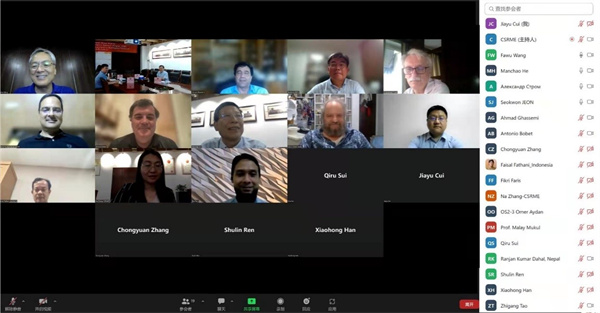
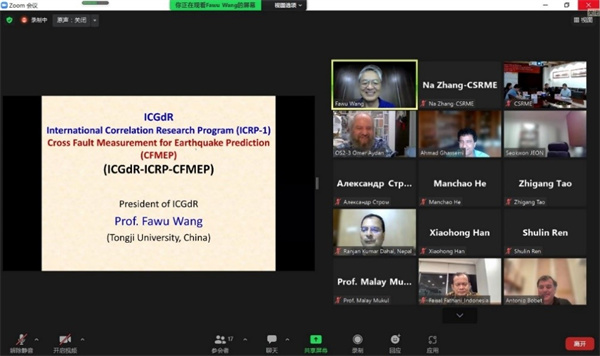
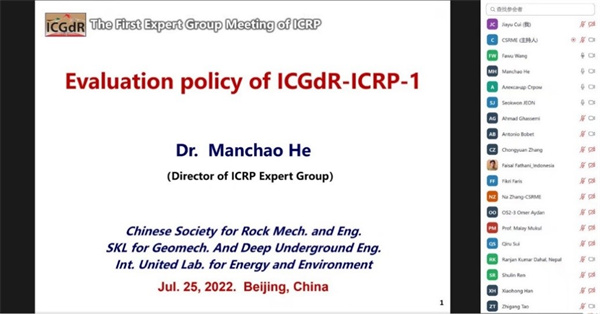
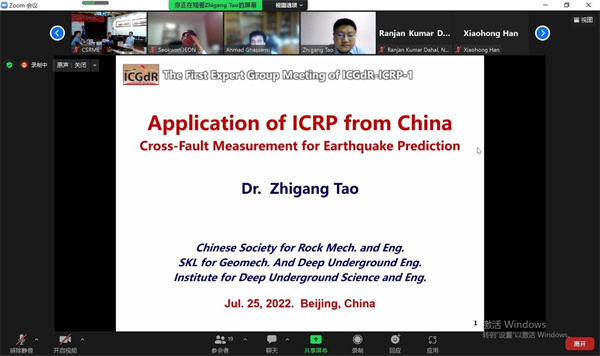
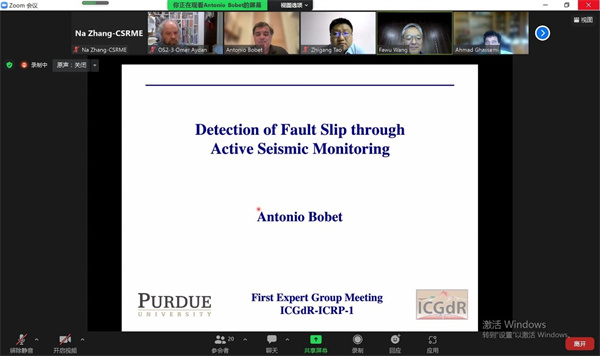
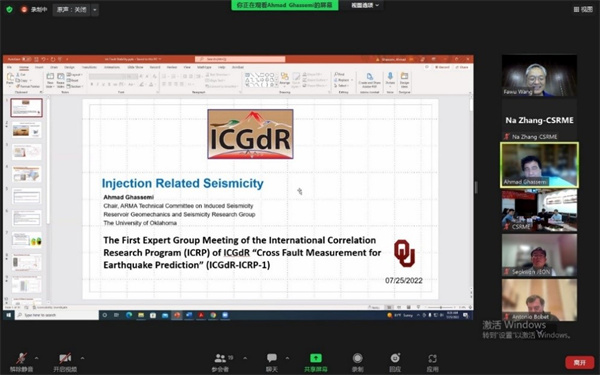
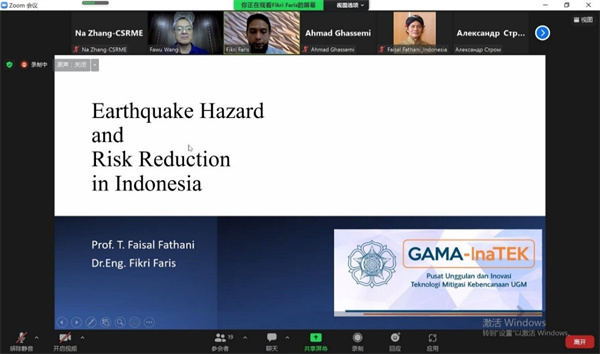
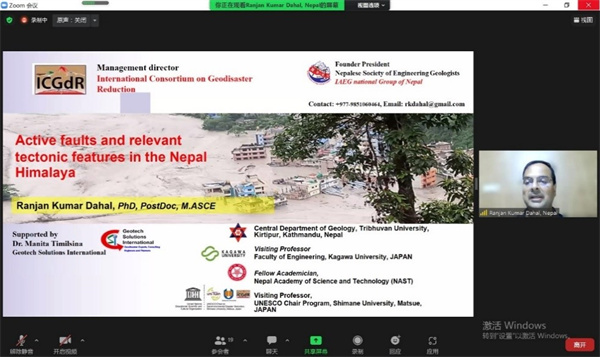
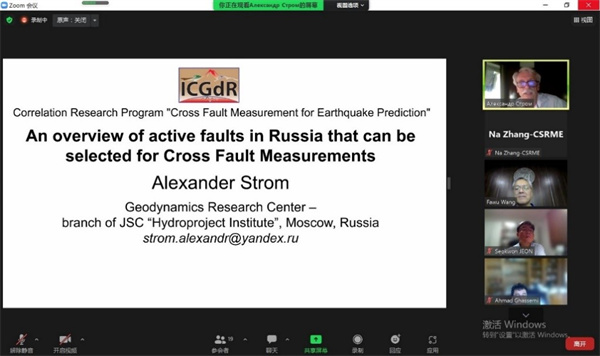







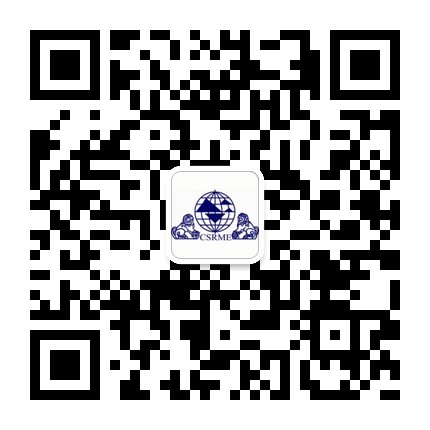 中国岩石力学与工程学会微信订阅号
中国岩石力学与工程学会微信订阅号
 科普岩石力学与工程
科普岩石力学与工程